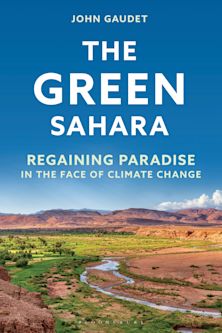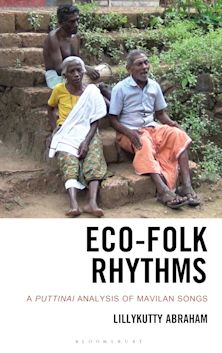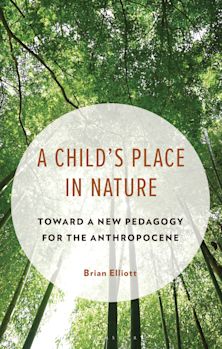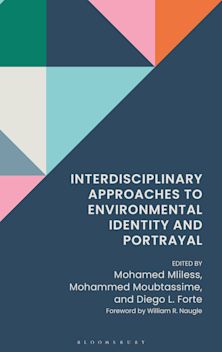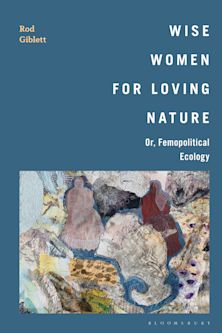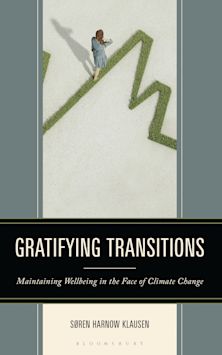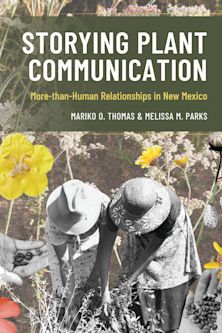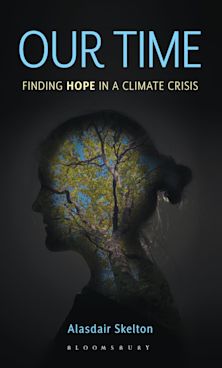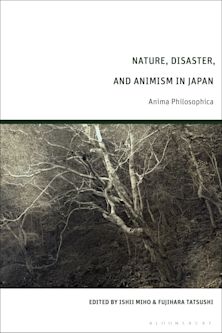- Home
- ACADEMIC
- Environmental Studies
- Embodied Memories, Embedded Healing
Embodied Memories, Embedded Healing
New Ecological Perspectives from East Asia
Xinmin Liu (Anthology Editor) , Peter I-min Huang (Anthology Editor) , Kiu-wai Chu (Contributor) , Simon Estok (Contributor) , Xian Huang (Contributor) , Peter I-min Huang (Contributor) , Young-Hyun Lee (Contributor) , Hua Li (Contributor) , Jialuan Li (Contributor) , Xinmin Liu (Contributor) , Kenichi Noda (Contributor) , Iris Ralph (Contributor) , Scott Slovic (Contributor) , Lili Song (Contributor) , Ban Wang (Contributor) , David Wang (Contributor) , Qingqi Wei (Contributor) , Philip F. Williams (Contributor) , Xin Ning (Contributor) , Kathryn Yalan Chang (Contributor) , Sijia Yao (Contributor)
Embodied Memories, Embedded Healing
New Ecological Perspectives from East Asia
Xinmin Liu (Anthology Editor) , Peter I-min Huang (Anthology Editor) , Kiu-wai Chu (Contributor) , Simon Estok (Contributor) , Xian Huang (Contributor) , Peter I-min Huang (Contributor) , Young-Hyun Lee (Contributor) , Hua Li (Contributor) , Jialuan Li (Contributor) , Xinmin Liu (Contributor) , Kenichi Noda (Contributor) , Iris Ralph (Contributor) , Scott Slovic (Contributor) , Lili Song (Contributor) , Ban Wang (Contributor) , David Wang (Contributor) , Qingqi Wei (Contributor) , Philip F. Williams (Contributor) , Xin Ning (Contributor) , Kathryn Yalan Chang (Contributor) , Sijia Yao (Contributor)
This product is usually dispatched within 2-4 weeks
- Delivery and returns info
-
Flat rate of $10.00 for shipping anywhere in Australia
You must sign in to add this item to your wishlist. Please sign in or create an account
Description
Embodied Memories, Embedded Healing critically engages with the major East Asian cultural knowledge, beliefs, and practices that influence environmental consciousness in the twenty-first century. This volume examines key thinkers and aspects of Daoist, Confucianist, Buddhist, indigenous, animistic, and neo-Confucianist thought. With a particular focus on animistic perspectives on environmental healing and environmental consciousness, the contributors also engage with media studies (eco-cinema), food studies, critical animal studies, biotechnology, and the material sciences.
Table of Contents
Chapter 1: Humility by Proportion: What Zhu Xi and St. Paul Have to Say about the Baconian Attack on ‘Nature’
David Wang
Chapter 2: Old Dreams Retold: Lu Xun as Mytho-Ecological Writer
Ban Wang
Chapter 3: Planetary Healing Through the Ecological Equilibrium of Ziran: A Daoist Therapy for the Anthropocene
Jialuan Li and Qingqi Wei
Chapter 4: Toward an Ecocriticism of Cultural Diversity: Animism in the Novels of Guo Xuebo and Chi Zijian
Lili Song
Chapter 5: Population, Food, and Terraforming: Ethics in He Xi’s Alien Zone and Six
Realms of Existence
Hua Li
Chapter 6: Junkspace and Non-place in Taiwan’s New Eco-Literature
Peter I-min Huang
Part II: The Embodied Imaginary
Chapter 7: The Loss of Genetic Diversity and Embodied Memories in Paolo Bacigalupi’s The Windup Girl
Simon Estok and Young-Hyun Lee
Chapter 8: ShakespeaRe-Told’s Macbeth and Eric Yoshiaki Dando’s Oink, Oink, Oink
Iris Ralph
Chapter 9: The Logic of the Glance: Non-Perspectival Literary Landscape in Wildfires by Ooka Shohei
Kenichi Noda
Chapter 10: The Paradox of Aerial Documentaries: Eco-Gaze and National Vision
Sijia Yao
Chapter 11: Humans, Mermaids, Dolphins: Endangerment, Eco-Empathy, Multispecies’ Co-existence in Stephen Chow’s The Mermaid
Kiu-Wai Chu
Part III: Myriad Therapeutic Lands
Chapter 12: Displacement and Restoration: A Therapeutic Landscape in 311 Revival
Kathryn Yalan Chang
Chapter 13: Nuclear Power Plants, East Asia, and Planetary Healing
Philip F. Williams
Chapter 14: The Revitalization of Old Industrial Sites in Beijing: A Case Study of Shougang (Capital Steel) Park
Xin Ning
Chapter 15: Rebuilding the Pavilion: ‘Doubled’ Experience of Heritage at the Geo-Media Age
Xian Huang
Product details
| Published | 22 Aug 2023 |
|---|---|
| Format | Paperback |
| Edition | 1st |
| Extent | 300 |
| ISBN | 9781793647610 |
| Imprint | Lexington Books |
| Illustrations | 5 b/w illustrations |
| Dimensions | 231 x 154 mm |
| Series | Environment and Society |
| Publisher | Bloomsbury Publishing |
About the contributors
Reviews
-
This is a superb book. In reconstructing the relationship between embodied memory and ecological consciousness in East Asian cultures, it also foregrounds the latest and exciting explorations of East Asian scholars in ecocriticism. With these contributions, this anthology will lead to a redrawing of the map of global ecological research.
Xiao-Hua Wang, Shenzhen University
-
Embodied Memories, Embedded Healing: New Ecological Perspectives from East Asia is an impressive collection of fifteen chapters. Collectively, it raises crucial questions concerning ‘land-human affinity’ and human responsibility in turbulent times of ecological crisis. Veering away from the notion of aesthetics as fetishized knowledge (e.g., Sino- and/or Cartesian ocularcentric aesthetics), this volume advocates for localized and embodied aesthetic responses as a basis for ethics, politics, and everyday cultural practices. It brings together a variety of disciplines—classical philosophy, critical animal/multispecies studies, green literary/cultural/ cinema studies, minority literary studies, and science and technology studies (STS) and Sci-Fi/Cli-fi—to cover a dazzling array of topics, including biotechnology, eco-displacement and endangered species, energy strategies, global capitalism and food industry, and land and cultural ruination, restoration, and preservation in East Asia. This book is a significant contribution to the field of East Asian ecocriticism!
Chia-ju Chang, Brooklyn College-CUNY
-
Ecological sensitivities in East Asia are experienced rather than conceptualized, and thus can be misleading. Presenting analytical interpretations on the viscerally and theoretically entangled ecological perspectives of East Asia, this collection offers common ground for ecocritical discussions from around the world.
Yuki Masami, Aoyama Gakuin University
-
In Embodied Memories, Embedded Healing: New Ecological Perspectives from East Asia, editor-contributors Xinmin Liu and Peter I-min Huang illuminate how the beliefs and practices of ancient East Asia are shaping twenty-first-century environmental consciousness. The collection features prominent scholars from around the world who offer new theoretical frameworks for ecological thinking and praxis. Readers are treated to cutting-edge research and eye-opening discussions spanning a wide variety of genres and media forms that cover a range of topics, from ancient animist beliefs to urban ecology, affect theory, and contemporary science fiction. Through various methods of analysis, each chapter makes substantial contributions to our understanding of global ecology, especially the relationship between human practices and nonhuman nature. This anthology is essential reading for anyone interested in healing the planet.
DJ Lee, Washington State University
-
When Hamlet rhapsodizes, "What a piece of work is a man!" it takes him only a moment to pivot from praise to disgust. His double-edged encomium to the civilized male human as the "measure of all things" offers a good starting point for consideration of this volume edited by Liu and Huang. Recalling the dilemma Einstein faced when his beautiful theory of energy led to invention of the atomic bomb, the many ways in which humankind has harmed nature are cataloged here. The Faustian bargain humans have pursued since the Industrial Revolution keeps coming back to haunt them, and now "the world is too much with us." This timely collection of dark ruminations on nature gathers 15 essays contributed by scholars of literature, media, philosophy, and geography from Asia and the US, all voicing their environmental concerns. Authors variously ponder, e.g., the origins of nature worship in Eastern philosophy or lay bare the decimation of the environment through "progress." The central theme of the collection is that homo sapiens is only part of nature and not its master. As framed by the editors, the essays illustrate that healing can begin only when human hubris can be swept aside to allow nature an opportunity to recover. Recommended. Upper-division undergraduates. Graduate students, faculty, and professionals.
Choice Reviews













